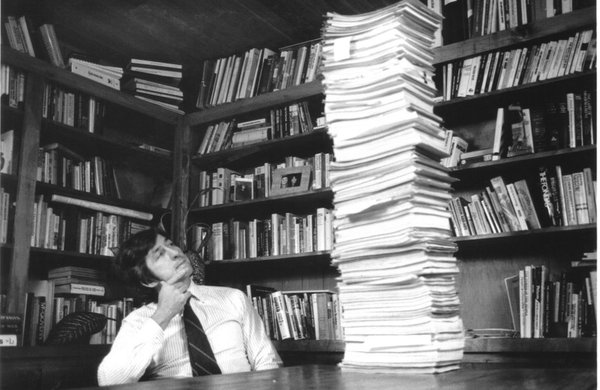When I was 13, I had on the bulletin board in my bedroom newspaper photos of Hayden and the rest of the Chicago Seven, along with their defense attorney, William Kuntsler (who had earlier represented many civil rights activists here in St. Augustine, including Barbara B. Allen). During the Vietnam Moratorium, I wore a black armband to my junior high school. Someone threw it in the shower during gym class. I wordlessly I reached in my pocket and retrieved a second black armband I had brought, anticipating energumen. (Both were derived from one of my father's mismatched black socks my mother had graciously provided the night before).
On The Today Show on NBC one morning, my father and other WWII 82nd Airborne Divn. paratroopers were interviewed by Joe Garragiola during one of the 82nd annual conventions. Garragiola provocatively asked the vets about anti-war protesters; my dad proudly replied, "My son is anti-war." The South Jersey Chapter of the 82nd Airborne Divn. Assn. is named for my father, "The CPL Edward A. Slavin Chapter." Dad and his comrades, other 82nd vets from WWII, Korea and Vietnam would speak at schools about war experiences, hoping there would be no more wars.
Likewise, Tom Hayden spoke out, all across this land, and abroad, with his website still inviting invitations this morning, after his death.
And Tom Hayden was a key part of stopping the senseless killing of Americans and Southeast Asians.
Tom Hayden, R.I.P.

Tom Hayden and his 22,000 page FBI file, circa 1979
www.tomhayden.com
Tom Hayden, Civil Rights and Antiwar Activist Turned Lawmaker, Dies at 76
By ROBERT D. McFADDEN
OCT. 24, 2016
Tom Hayden, who burst out of the 1960s counterculture as a radical leader of America’s civil rights and antiwar movements, but rocked the boat more gently later in life with a progressive political agenda as an author and California state legislator, died on Sunday. He was 76.
His wife, Barbara Williams, confirmed the death to The Associated Press. Mr. Hayden had been suffering from heart problems and fell ill while attending the Democratic National Convention in Philadelphia in July.
During the racial unrest and antiwar protests of the ’60s and early ’70s, Mr. Hayden was one of the nation’s most visible radicals. He was a founder of Students for a Democratic Society, a defendant in the Chicago Seven trial after riots at the 1968 Democratic National Convention, and a peace activist who married Jane Fonda, went to Hanoi and escorted American prisoners of war home from Vietnam.
As a civil rights worker, he was beaten in Mississippi and jailed in Georgia. In his cell he began writing what became the Port Huron Statement, the political manifesto of S.D.S. and the New Left that envisioned an alliance of college and university students in a peaceful crusade to overcome what it called repressive government, corporate greed and racism. Its aim was to create a multiracial, egalitarian society.
Like his allies the Rev. Dr. Martin Luther King Jr. and Senator Robert F. Kennedy, who were assassinated in 1968, Mr. Hayden opposed violent protests but backed militant demonstrations, like the occupation of Columbia University campus buildings by students and the burning of draft cards. He also helped plan protests that, as it happened, turned into clashes with the Chicago police outside the Democratic convention.
In 1974, with the Vietnam War in its final stages after American military involvement had all but ended, Mr. Hayden and Ms. Fonda, who were by then married, traveled across Vietnam, talking to people about their lives after years of war, and produced a documentary film, “Introduction to the Enemy.” Detractors labeled it Communist propaganda, but Nora Sayre, reviewing it for The New York Times, called it a “pensive and moving film.”
Later, with the war over and the idealisms of the ’60s fading, Mr. Hayden settled into a new life as a family man, writer and mainstream politician. In 1976 he ran for the Democratic nomination for the United States Senate from California, declaring, “The radicalism of the 1960s is fast becoming the common sense of the 1970s.” He lost to the incumbent, Senator John V. Tunney.
But, focusing on state and local issues like solar energy and rent control, he won a seat in the California Legislature in Sacramento in 1982. He was an assemblyman for a decade and a state senator from 1993 to 2000, sponsoring bills on the environment, education, public safety and civil rights. He lost a Democratic primary for California governor in 1994, a race for mayor of Los Angeles in 1997 and a bid for a seat on the Los Angeles City Council in 2001.
He was often the target of protests by leftists who called him an outlaw hypocrite, and by Vietnamese refugees and American military veterans who called him a traitor. Conservative news media kept alive the memories of his radical days. In a memoir, “Reunion” (1988), he described himself as a “born-again Middle American” and expressed regret for “romanticizing the Vietnamese” and for allowing his antiwar zeal to turn into anti-Americanism.
“His soul-searching and explanations make fascinating reading,” The Boston Globe said, “but do not, he concedes, pacify critics on the left who accuse him of selling out to personal ambition or on the right ‘who tell me to go back to Russia.’ He says he doesn’t care.”
“I get re-elected,” Mr. Hayden told The Globe. “To me, that’s the bottom line. The issues persons like myself are working on are modern, workplace, neighborhood issues.”
No comments:
Post a Comment